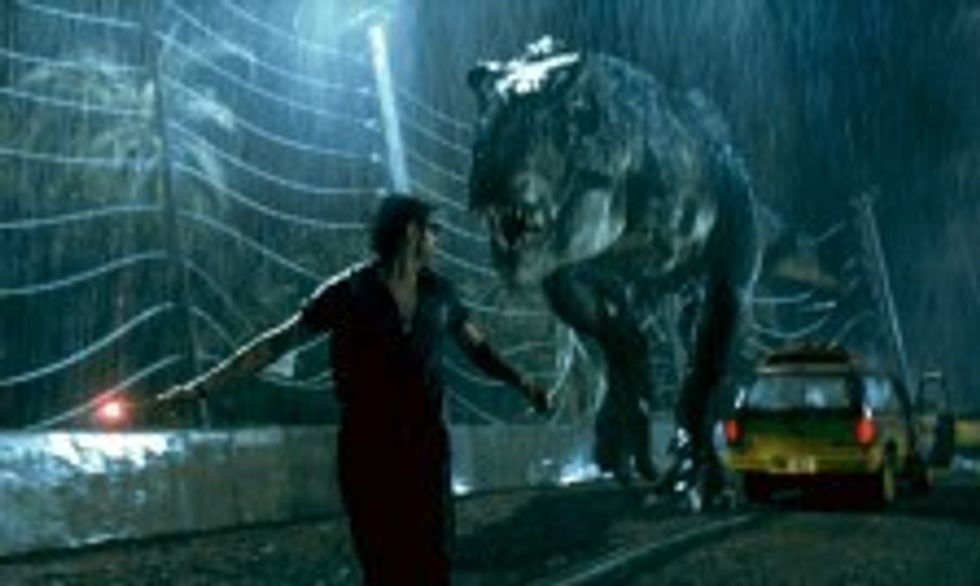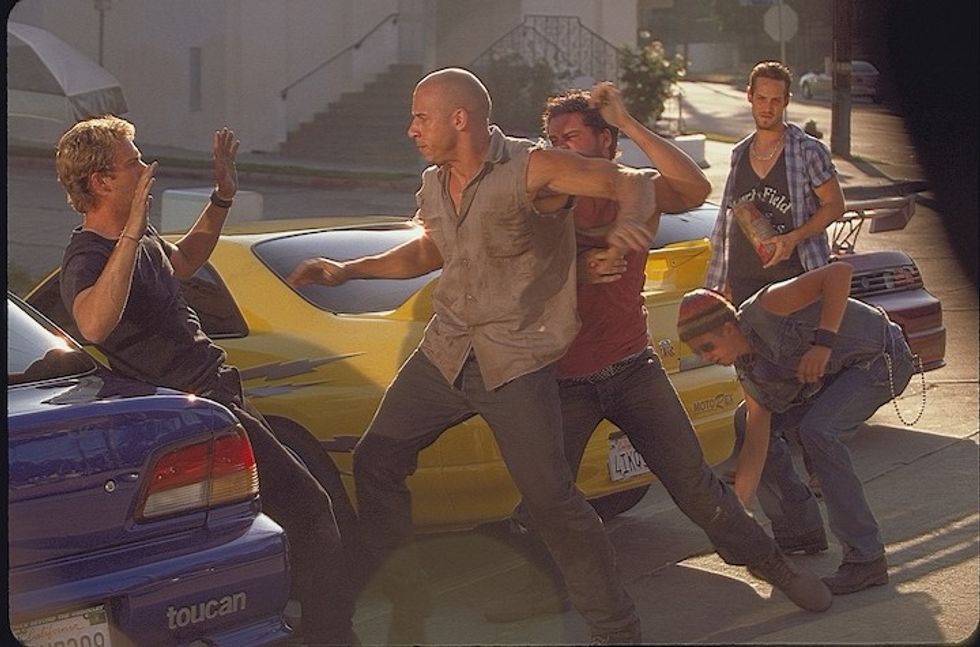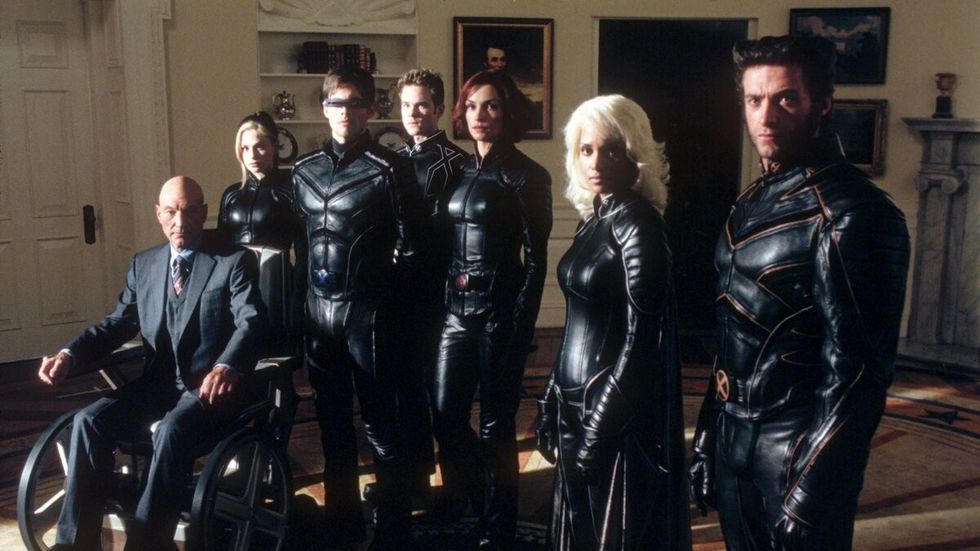Stop Bailing On Your Concept Halfway Though Your Screenplay
If you have a strong hook, fulfill the promise of your premise.

Mission: Impossible Fallout
Last week, I was at dinner with an executive who works at one of the three largest studios in Hollywood. I asked him about his favorite spec scripts and if he had any advice for writers who were trying to break in. He took a deep breath and said, "I wish more writers understood how important the concept of their movies is and how much they need to deliver on that promise."
It was at that moment I realized we needed to have and article on that statement. I went back through all the scripts I gave notes on in the last year, and I found that almost all of them either had an underdeveloped concept or bailed on that concept at the start of their screenplay.
So today, we're going to do a deep dive into concepts and see where we land.
Let's get started.
What is a Concept in Screenwriting?
In screenwriting, the concept refers to the central idea or driving force behind your story.
What Makes Up a Good Concept
A good concept has all the following elements:
- Core Premise: The foundational "what if" question that sparks your whole screenplay. For example:
- What if a group of ordinary people had to escape a deadly dinosaur theme park? (Jurassic Park)
- What if a shy, bullied teenager with spider-powers became a superhero? (Spider-Man)
- Theme: The underlying message or exploration your story addresses. This could be a concept like love conquers all, the consequences of greed, or the importance of family.
- Hook: That unique element that makes your story stand out and capture attention. It could be a genre twist, an unusual character dynamic, or the setting's striking originality.
The Two Kinds of Concepts

Jurassic Park
Universal
There are two kinds of concepts in Hollywood:
- High Concept: These ideas are easily summarized in a couple of sentences and often have a strong, immediate visual or commercial appeal. Examples include Snakes on a Plane and The Matrix.
- Low Concept: These concepts are more character-driven or rely on nuanced themes, rather than a splashy premise. Examples include films like Moonlight or Lady Bird.
Why is Concept So Crucial?

Moonlight
A24
When you're in a pitch or a general meeting, you want your concept to feel like a project those people are trying to make. Your concept is what your agent or manager can also sell a filmmaker on when they're trying to package an idea.
Here's a few reasons this matters so much:
- Focus: A well-defined concept keeps your writing focused, acting as a compass. It's your guide as you navigate plot twists and character development.
- Pitchability: Agents and producers are busy people. Your concept is what 'sells' your idea. A strong concept can be conveyed quickly and sparks curiosity making people want to read your script.
- Audience Connection: People want stories that speak to something larger—an emotion, idea, or experience. Your concept grounds your story in human themes, adding depth and resonance that draws audiences in.
Stop Bailing on Your Concepts!

The Fast and the Furious
Universal Pictures
Let's go back to the original answer given to me by the executive. If you have a strong concept, you need to deliver on it. Blake Snyder called this fulfilling the promise of the premise.
Every screenwriter has been there—you're fueled by an electrifying idea, you blast through the first act of your screenplay.
You've outlined your characters, your world glistens with detail, and the premise hooks with thrilling potential. Then, somewhere around page 45, the momentum peters out.
Your once-brilliant idea feels tired, and doubt begins to creep in.
Before you know it, your script lies abandoned in the digital graveyard of unfinished projects.
This is killing your screenplay in the marketplace. People want concepts that get delivered by writers, and it's what separates the veterans from the amateurs.
So I want to dig deeper on why we bail and what we can do to stay the course.
Why We Bail

X-Men
FoxThe excitement of a new idea can fade as you delve into the nitty-gritty. And you may want to stray from what was working because you're blocked about what needs to happen moving the story forward.
Don't do that.
Let's unravel the reasons behind why we pivot away from strong concepts.
- The messy middle: Act Two is notoriously tricky! This is where conflict escalates, subplots intertwine, and your character's journey deepens. Naturally, things get messy and the path forward feels less obvious.
- Fear of the unknown: As you write, unexpected twists or characters might emerge. This can be unsettling, throwing you off course and tempting you to return to the safety of your initial, simpler outline.
- Comparison and self-doubt: It's easy to compare your work-in-progress to polished films, making your script feel inadequate. This inner critic whispers that maybe the idea wasn't so great after all.
Maximizing Your Concept

The Revenant
20th Century Studios
If you're sitting here knowing you may be bailing on your concept, stop and let's have a chat. You know the reasons people bail, but now I want to give you the tools to push through.
Here's what helps me:
- Revisit your 'why': Remember the initial spark of inspiration that ignited this story. Reconnect with the emotions and themes that excited you in the first place. Write these down and keep them visible.
- Re-engage with your outline: Does your outline fully map out the emotional peaks and valleys of your story? Is there enough rising tension and conflict in the second act? Analyze your outline to make sure it offers a robust guide for your writing.
- Embrace the mess: Don't be afraid of a messy middle act! It's where the true magic of transformation happens for your characters. Lean into detours and unexpected developments; these might take your script in amazing new directions.
- Get feedback: Find trusted readers, a screenwriting group, or a mentor. Sometimes, simply talking through your concept can renew your focus. Objective feedback can identify plot holes or areas needing more tension.
- Break it down: Don't think about writing the whole second act. Take it scene by scene. Focus on the next small step forward. Small victories accumulate into a finished script.
- Silence your inner critic: Remember, the first draft is meant to exist, not be perfect. Tell your inner critic to take a break and focus on getting your story onto the page.
Remember, screenwriting is a marathon, not a sprint. There will be times when writing feels effortless and others when it's a grind.
The key is to persevere, trusting that your commitment to your initial concept will yield amazing results. Keep writing, and watch your story break free into a completed work you can be proud of!
Let me know what you think in the comments.

 'Anora'Neon
'Anora'Neon Annie Johnson Kevin Scanlon
Annie Johnson Kevin Scanlon









